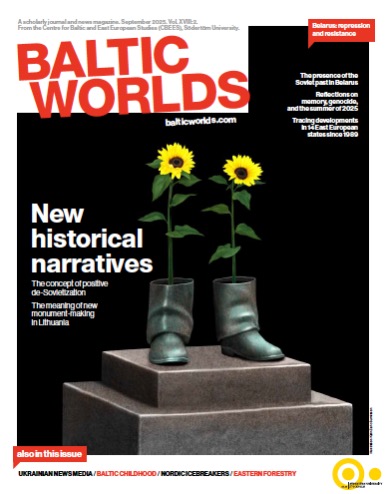Post-military Islands in transformation. Leaving the past aside
+ Beate Feldmann Eellend: Visionära planer och vardagliga praktiker: Postmilitära landskap i Östersjö-området (Visionary plans and everyday practices: post-military landscapes in the Baltic Sea region). Acta Universitatis Stockholmiensis. Stockholm Studies in Ethnology 7, 2013. 157 pages, ill.

 Issue 2025, 2:
Issue 2025, 2: